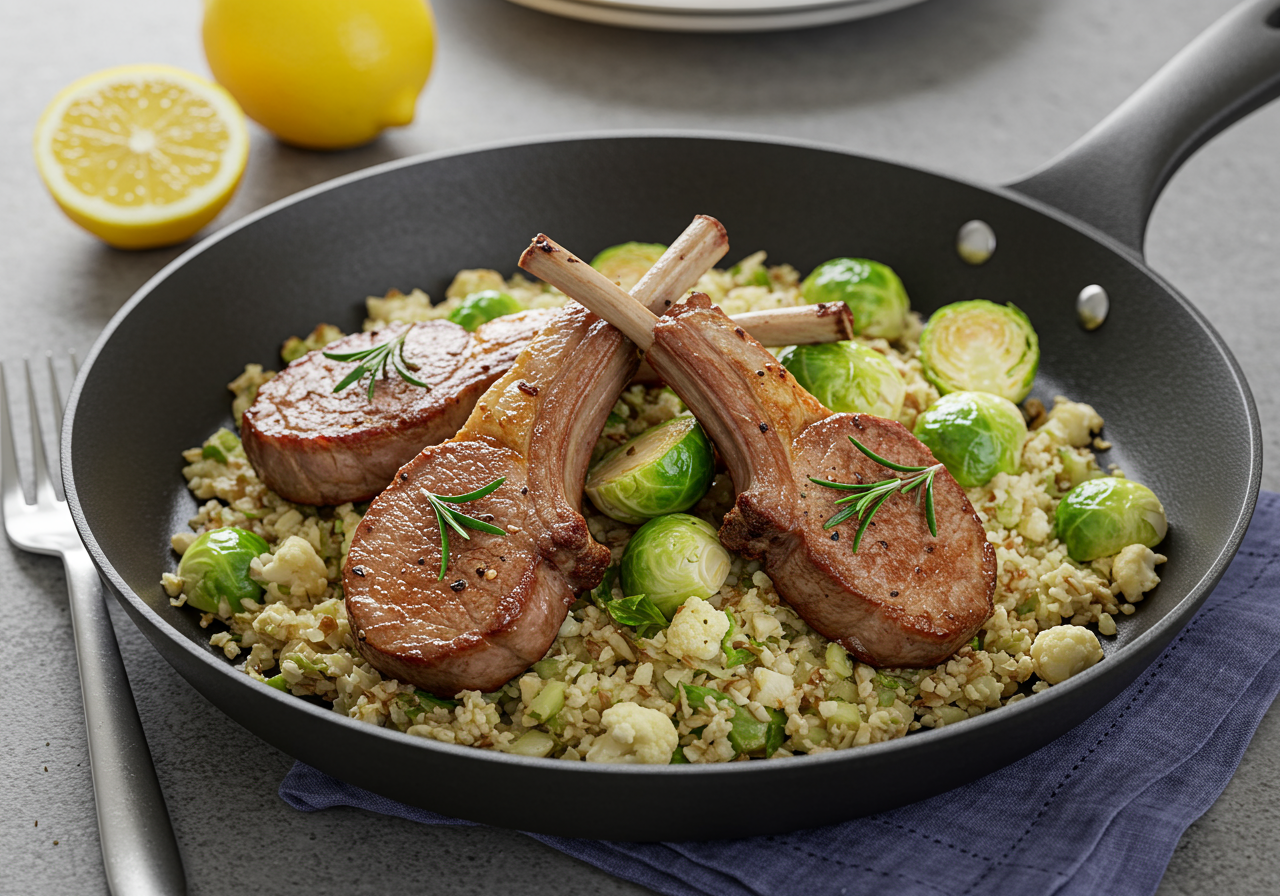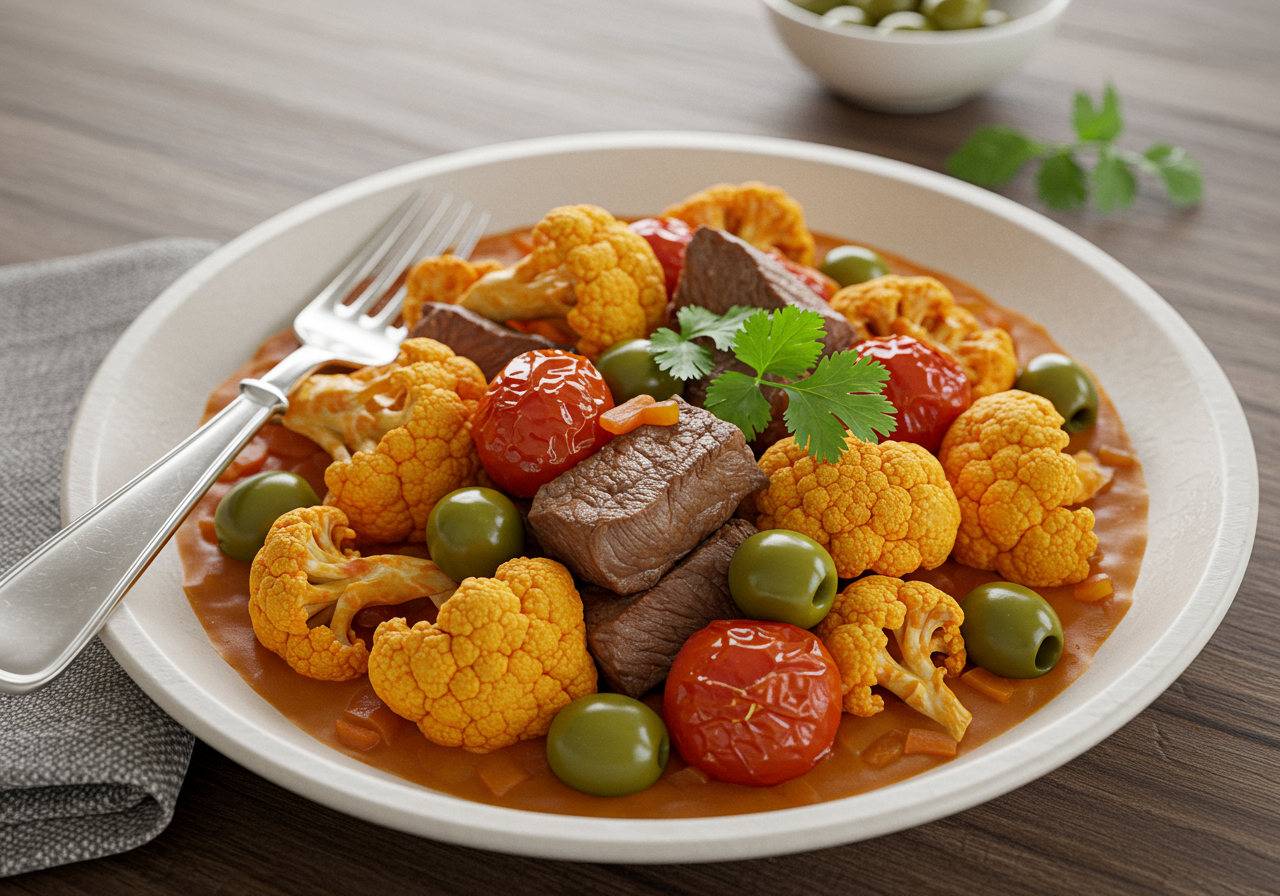Pan-Seared Lamb Chops with Rosemary & Cauliflower-Brussels Sprout Hash
A sophisticated yet simple keto-friendly meal featuring perfectly seared lamb chops served over a warm, savory hash of shredded Brussels sprouts and riced cauliflower, all brought together with garlic and fresh rosemary.

*Image is for illustration purposes and may differ from the actual recipe (AI generated).
1550 calories
$10 per serving
$35 min
2 servings
keto, any cuisine
Ingredients
- 4 lamb chops (approx. 400g total)
- 250g Brussels sprouts, trimmed and finely shredded
- 250g cauliflower, riced or finely chopped
- 1 small onion, finely diced
- 3 cloves garlic, minced
- 30ml olive oil
- 1 sprig fresh rosemary, leaves finely chopped
- 15ml lemon juice
- Salt to taste
- Freshly ground black pepper to taste
Instructions
- 1.Pat the lamb chops dry and season generously on both sides with salt and pepper.
- 2.Heat 15ml of olive oil in a large skillet or pan over medium-high heat. Once shimmering, carefully place the lamb chops in the pan.
- 3.Sear the chops for 3-4 minutes per side for medium-rare, or until cooked to your preference. Remove the lamb from the pan and set aside on a plate to rest.
- 4.Reduce the heat to medium. In the same pan with the lamb drippings, add the remaining 15ml of olive oil, the diced onion, and sauté for 3-4 minutes until softened.
- 5.Add the minced garlic and chopped rosemary and cook for another minute until fragrant.
- 6.Add the shredded Brussels sprouts and riced cauliflower to the pan. Season with salt and pepper and cook, stirring occasionally, for 6-8 minutes until the vegetables are tender-crisp.
- 7.Squeeze the lemon juice over the vegetable hash and stir to combine, scraping up any browned bits from the bottom of the pan.
- 8.Divide the hash between two plates and top with the rested lamb chops to serve.
Nutrition Information
120g
fat
35g
carbs
14g
fiber
94g
protein
Why this recipe
This recipe is a nutrient-dense powerhouse, ideal for a ketogenic lifestyle. Lamb provides high-quality protein and healthy fats, plus essential minerals like iron and zinc, while the cruciferous vegetables offer substantial fiber, vitamins C and K, and antioxidants for gut health and low inflammation.
